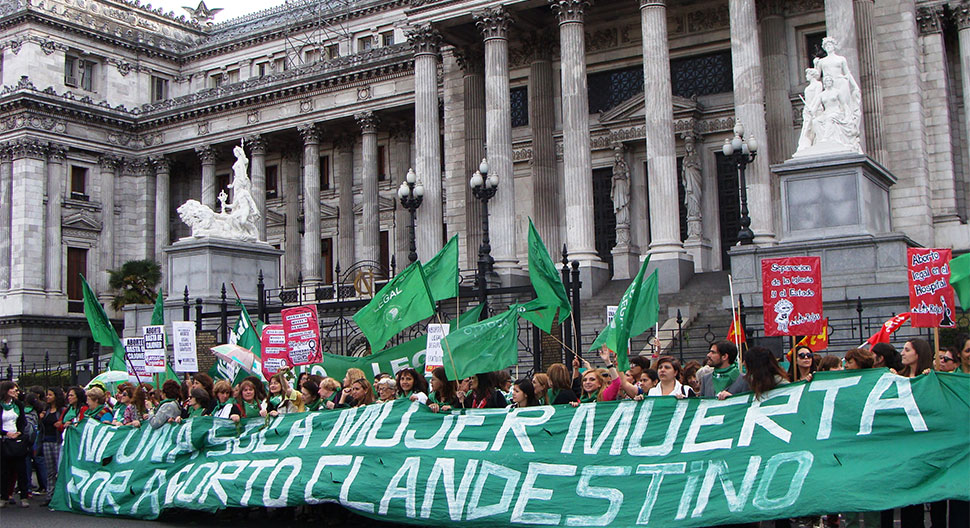Feminists across Latin America have been celebrating for the last few days as Argentina’s lower house of parliament brought abortion rights one step closer to fruition in the country.
The bill, which would legalise abortions in Argentina for the first 14 weeks of gestation, was voted in with 131 in favour, 117 votes against, and 6 abstentions
Despite the longstanding energetic women’s rights movement in Argentina, the law has always treated those seeking abortion extremely harshly.
Current law stipulates that abortion may only be available in cases where the mother’s life is at risk and in cases of rape.
The extremist nature of Argentian hostility to abortion was exemplified in a widely-publicised case in 2019 involving an 11-year-old girl who’d been raped by her grandmother’s 65-year-old partner.
Eager defendants of the girl’s right to abortion were constantly blockaded on grounds of family responsibility technicalities until the request had been delayed by 5 weeks. By this time a c-section became the only medically viable option, despite the child saying “I want this thing the old man put inside me taken out” at the beginning, when an abortion would still have been safe.
Critics of the new bill claim that they are defending the right to life, which they claim begins at conception.
Statistically, however, abortions are undertaken the world over regardless of legality. Laws do not make abortions rarer. They do make them more dangerous as women are forced to take unsafe procedures in illegal settings.
Globally, an estimated 68,000 women die from unsafe abortions and 5 million are hospitalised by serious complications of such procedures.
Annually, 500,000 of these unsafe and clandestine abortions are performed in Argentina from which 40,000 women are hospitalised.
This overwhelmingly affects working class women who don’t have the resources or connections that richer families do to get through loopholes for safe abortions.
The utility of forcing this upon women is non-existent, and the attitude prevails throughout much of South America due to the moralistic sway of the Catholic church.
The powerful institution and its leader Pope Francis vigorously denounce calls to make this practice safe and legal for women, and are calling on the senate to strike down the bill.
A similar bill passed through the lower house in 2018, although was opposed from the very beginning by then-president Mauricio Macri, a neoliberal from one of Argentina’s richest families. This helped set it up for failure in the senate with 38 voting against and 31 in favour.
As the current version of the bill approaches the senate again, most likely in the final days of December, advocates of women’s rights are more hopeful.
The Peronist government has been supportive of the legislation, with vice president Cristina Fernandez de Kirchner giving her stamp of approval.
Those who want to save the lives of thousands of Argentina women face an anxious couple of weeks as they wait to find out whether the senate will finally deliver a safe medical environment for women to access an essential human right.
Mali Kakembo, is a member of the Welsh YCL



